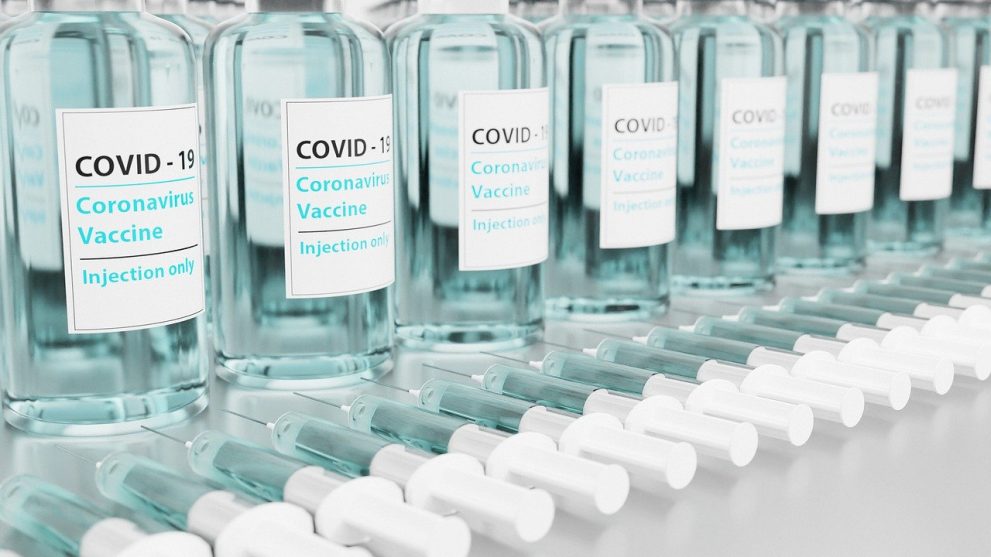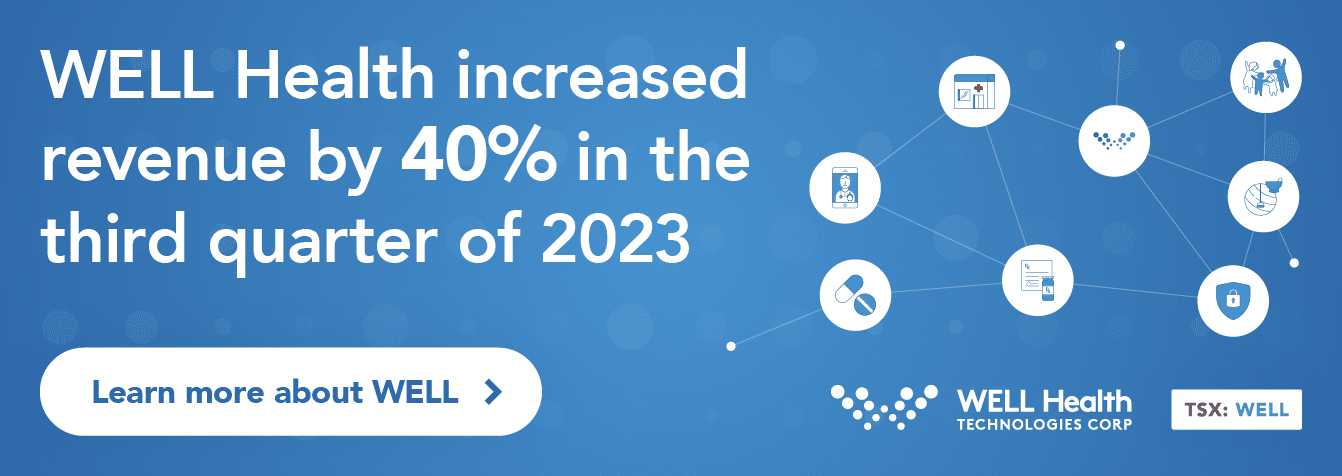
 The potential for booster shots coming online to tackle COVID-19 variants has brought talk of a long-term market emerging in coronavirus vaccinations, a scenario which while presenting further challenges for health agencies also opens up new avenues for growth in the biotech sector.
The potential for booster shots coming online to tackle COVID-19 variants has brought talk of a long-term market emerging in coronavirus vaccinations, a scenario which while presenting further challenges for health agencies also opens up new avenues for growth in the biotech sector.
It’s all part and parcel of the current Golden Age in biotechnology, says Brian Bloom of healthcare investment firm Bloom Burton & Co., who thinks investors should be paying attention to the space as the pandemic market wanes and the endemic market opens up.
Drug-makers Pfizer and BioNTech met earlier this week with US and European regulators to talk about the potential for offering a third dose of their mRNA COVID-19 vaccine as a booster to combat the rise in variants of concern, citing an increased of infection after six months of vaccination.
Health experts are currently at odds over whether a third dose is justified at this time, especially as first-dose vaccinations in many parts of the world are still needed. Health Canada has said that it has yet to receive a submission from Pfizer on a third dose, while Israeli officials said on Sunday that those adults with weak immune systems would have the option of a third vaccine as a booster to help in the country’s response to the fast-spreading Delta variant.
The idea of a COVID-19 lingering in the global environment for years may be unsettling to many but it’s undoubtedly pushing research and development in the biotech sector, according to Bloom, who spoke on BNN Bloomberg on Monday.
“It’s actually great news that companies are turning their attention to what we call the endemic or the annual boosting market, which is going to be a real market,” Bloom said.
“Variants are going to emerge and everyone’s immunity that they got from being double vaccinated … this may wane over time, and we may need a pick-me-up. So, it’s very important that these have been tested and that regulators are reviewing them,” he said.
“And just like [how] the pandemic vaccines are the first shots, it’s very important that governments and everyone encourage more than Pfizer to try to bring these to market so that many choices are on the market because you never know what’s going to happen with long term side effects and things like that,” Bloom said.
Bloom said the details on potential COVID booster shots will get worked out through clinical trials but that the fruitful results on vaccines over the past year and a half are themselves a testament to the strengths of the biotech sector, which is having a moment right now.
“The speed at which vaccines came to market is definitely a reflection of how awesome the biotechnology industry is,” Bloom said. “The biotech and pharma industries have enormously powerful tools to create new products and drugs and there’s almost unlimited capital out there to do this in infectious disease, in cancer and Alzheimer’s. We’re really in the middle of the golden age of medical research and the biotech industry and that’s what we have to thank.”
Biotech in general had a great run in 2020 but has cooled off in recent months. The Nasdaq Biotech Ishares ETF (Quote: NASDAQ:IBB) was up 27 per cent last year and was up a further six per cent over the first half of 2021, while the Ark Genomic Revolution ETF (Quote NYSE:ARKG) finished 2020 up 181 per cent but is down almost eight per cent this year.
Bloom said the profits companies will gain from the pandemic have already been priced into stocks for the most part but that there are still opportunities to be had in the sector.
“There are certainly international markets that still need their first doses, but in markets that are interesting to pharmaceutical companies and biotech companies and their investors the pandemic market is kind of over, or it’s going to be over soon,” Bloom said.
Among the publicly traded companies, Bloom said Novavax (Novavax Stock Quote, Chart, News, Analysts, Financials NASDAQ:NVAX) and Moderna (Moderna Stock Quote, Chart, News, Analysts, Financials NASDAQ:MRNA) should be on investors’ radar.
“As we switch to the endemic market we have to look at technologies that are easily manufacturable, that are safe and that can be produced at low cost,” Bloom said. “So, it’s still a question mark as to whether that is Pfizer and Madonna.”
“The ones that I have my eye on are private companies like Medicago and public companies like Novavax that have protein technologies. These generally may be safer over time. They aren’t likely to be immunogenic, they’re easier to produce and they may be the lowest cost option.”
“I’m also looking at companies like Novavax and Moderna. Those two have announced plans to co-develop COVID vaccines with influenza vaccines,” he said.
Leave a Reply
You must be logged in to post a comment.



 Share
Share Tweet
Tweet Share
Share




Comment